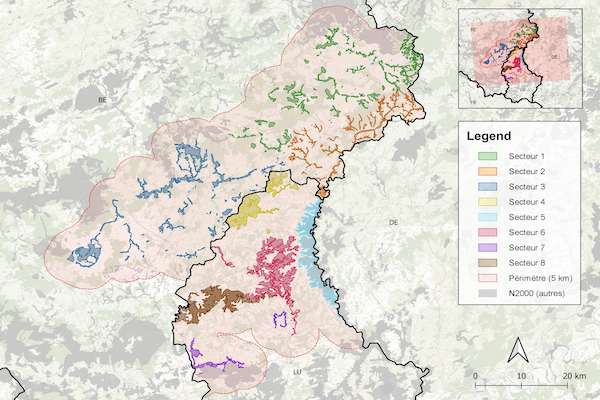
Luxembourg nature conservation non-profit organisation natur&ëmwelt has announced that it will be collaborating on a new project with Belgian nature project Natagora, entitled “LIFE ArdennEislek".
The aim of this new project is to establish and improve open land habitats, as well as two rare forest habitats, between Luxembourg’s Eislek region and the Belgian Ardennes.
Across these adjoining regions the presence of specific fauna, such as the blue-shimmering copper butterfly and the scabious fritillary butterfly (which is only found in Belgium), and birds such as the great grey shrike and the red-backed shrike, along with floral species like arnica and devil's bite, are regarded as indicators of intact and flourishing ecosystems within the area.
However, due to the isolated location of existing habitats which contain these animals and plants, populations are unable to cross with each other and colonise into new areas, which is why the “LIFE ArdennEislek" project is seeking to introduce a form of networking between these habitats in an effort to maintain their existence.
To facilitate this, corridors of hedges, rows of trees in open land and along bodies of water are being deliberately created to connect these isolated areas. In addition, scrub-covered and fallow wet meadows and silicate grasslands are being opened up and extensively maintained, creating a transnational network across the Belgian Ardennes and the Eislek regions.
67% of the project costs are to be covered by an EU funding programme (LIFE), with the Luxembourg and Belgian environment ministries covering most of the remaining budget.
LIFE (L'Instrument Financier pour l'Environnement) is the only EU funding programme that is aimed exclusively at environmental protection concerns. The programme, which has existed since 1992, promotes measures in the areas of biodiversity, environmental protection, climate protection and energy transition. The "LIFE Nature and Biodiversity" funding area primarily serves to protect species and habitats of community importance as well as biodiversity. The programme supports the establishment and management of the European Natura 2000 network of protected areas and the implementation of the EU biodiversity strategy.
The project is anticipated to run for seven years.








